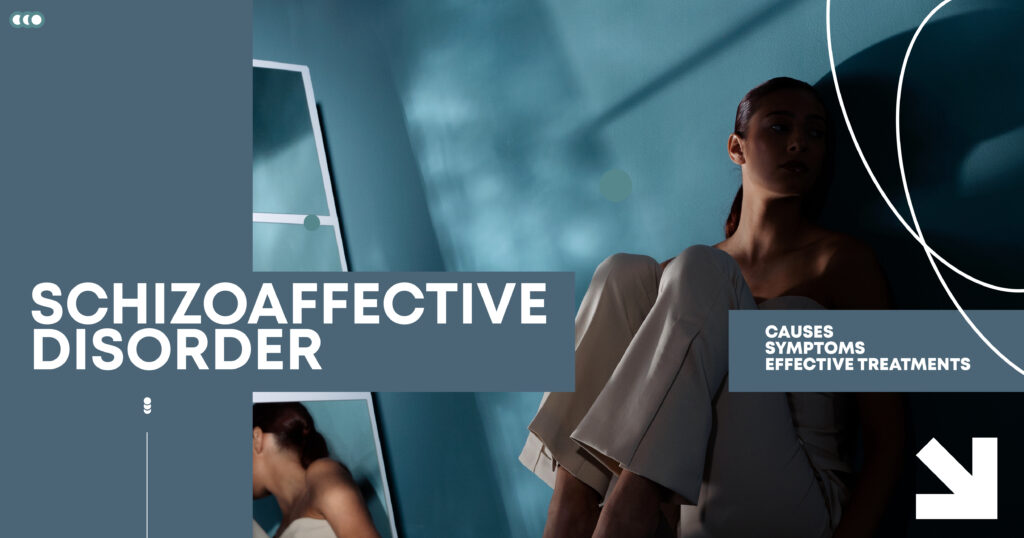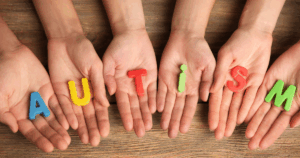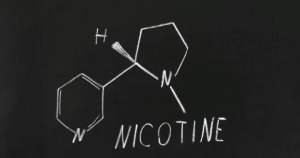Life with mental illness can be pretty serious, more so when complications go as high as those of Schizoaffective Disorder. Below, you will find all its causes, symptoms, and most effective treatment.
What Is Schizoaffective Disorder?
Schizoaffective Disorder is a chronic mental illness related to two main disorders: mood disorders and schizophrenia. It represents episodes of psychosis, like the presence of hallucinations and delusions, in combination with mood-related symptoms, such as mania or depression.
It’s never easy to diagnose Schizoaffective Disorder, as it often prevents the diagnosis from being exact and, in many cases, an individual remains misdiagnosed. In these situations, it is necessary to have the right help and experienced professionals to treat them and aid in healthy living.
Mental Health Center of San Diego
Types of Schizoaffective Disorder
| Bipolar Type | Manic or hypomanic episodes and sometimes depression. |
| Depressive Type | Major depression without manic episodes. |
Understanding Its Impact
Schizoaffective Disorder generally affects the normal functioning of life, relationships, job environments, and even day-to-day activities. The earlier the symptomatology of this disorder is known, the easier it becomes to take people for appropriate treatments.
What Causes Schizoaffective Disorder?
It is not known what the direct causes of Schizoaffective Disorder are, but there are a few theories indicating factors that are significant in this disease. Genetic, biological, and environmental factors could cause this disorder.
Genetic Factors
Genetics plays a very crucial role in the development of Schizoaffective Disorder.
- Family History. There is an increased risk of being diagnosed with Schizophrenia, Bipolar Disorder, or depression when there is a first-degree relative.
- Gene Mutations. Some researchers have identified genes that control the functioning of neurotransmitters and brain structure, which may be related to the disorder.
Brain Chemistry and Structure
Another crucial determinant of Schizoaffective Disorder is the biology of the brain.
- Neurotransmitter Imbalances. Some imbalances in dopamine, serotonin, and glutamate levels impede the communication of certain brain cells and have links with psychotic and mood symptomatology.
- Structural Abnormalities. The imaging studies’ findings depict size and activity variations between emotion, memory, and decision-making centers, including the prefrontal cortex and hippocampus.
Environmental Triggers
Most environmental stressors are precipitating factors that trigger this disorder in a susceptible individual.
| Trauma | Abuse or neglect during early childhood or exposure to violent situations is a risk factor. |
| Substance Abuse | Use of substances like cannabis, LSD, or amphetamine tends to worsen symptoms or even trigger the onset in an at-risk individual. |
| Major Life Events | Loss of an intimate partner, loss of job, or marital conflict may worsen the symptoms or precipitate it. |
The Interplay of Factors
Schizoaffective Disorder is most commonly not diagnosed because of a specific type of symptom. Instead, it occurs to a person because of genetics or having undergone some genetic combination of chemicals within and around the brain. For that type of case, diagnosis and treatment must be holistic.
Mental Health Center of San Diego
5 Schizoaffective Disorder Symptoms
The knowledge of the manifestation of Schizoaffective Disorder requires early intervention. Although the condition could be different in other patients, five symptoms are found to be most common among them:
- Hallucinations and Delusions
- Hallucinations. These are perceptions of sensory experiences that are not true, for example, hearing voices or seeing things that aren’t there.
- Delusions. Such strong belief in false realities, such as paranoia or grandeur feelings.

- Severe Mood Swings
- Manic Episodes. High energy, impulsive behavior, and low need for sleep.
- Depressive Episodes. Feeling sad, lethargic, and worthless.
- Disorganized Thinking and Speech
- Chaotic Thoughts. Patients may struggle to gather their thoughts, leading to disorganized thinking.
- Communication. They may jump between topics and speak in ways that are difficult for others to understand.
- Social Withdrawal
- Isolation. Patients often withdraw from society, distancing themselves from others.
- Withdrawal From Activities. They may avoid activities they once enjoyed, further isolating themselves.
- Cognitive Impairments
- Memory Impairments. Patients may experience difficulty remembering things.
- Concentration and Indecision. They often struggle with focusing and making decisions.
Early diagnosis of such symptoms significantly heightens the Schizoaffective Disorder treatment and also the quality of life.
Schizoaffective Disorder Treatment
Schizoaffective Disorder can only be effectively treated through an all-around, multidisciplinary approach tailored to each case. There are various steps to the Schizoaffective Disorder treatment:
- Medication
The drug is a cornerstone for the treatment of Schizoaffective Disorder. The spectrum also includes both psychotic symptoms as well as mood disorders. Treatment approaches for either variety of this disorder, mostly the bipolar or the depressive type, are different.
- Antipsychotics. To control hallucinations and delusional thinking besides other psychotic states, drugs such as risperidone, olanzapine, and aripiprazole can be given.
- Mood Stabilizers. For example, a person suffering from bipolar-type Schizoaffective Disorder is very responsive to the drugs like lithium or valproate, that regulate manic and depressive episodes.
- Antidepressants. Depressive-type Schizoaffective Disorder patients are typically given drugs such as SSRIs or tricyclic antidepressants for persistent sadness and hopelessness.
- Combination Therapy. Usually, more than one drug has to be taken together because it is a chronic condition.
- Important Consideration. Regular check-ups ensure that the drugs work effectively and that side effects like weight gain, lethargy, or a change in metabolism are kept at a minimal level.
- Therapy
Psychotherapy helps an individual understand his or her condition, cope with the symptoms, and eventually become better. It works synergistically with the drug for a more desirable outcome.
Cognitive Behavioral Therapy (CBT)
- This is an activity aimed at discovering and refocusing the negative thought process contributing to symptoms.
- Educates problem-solving skills as well as coping mechanisms of stress and triggers.
Talk Therapy
- Provides a warm, safe environment for discussions concerning emotional disorders as well as coping skills.
- Deals with an issue concerning trauma or relationships, likely exacerbating the disorder.
Family Therapy
- Family treatment is a type of talk therapy that aims at improving relationships among family members.
- Encourages a family environment that also would work in favor of better patient outcomes.

Group Therapy
- This helps people who suffer from the same issues, know that others are experiencing the same thing and understand what they are going through.
- Peer-led discussions by peers are included in group therapy which improves resilience and lowers the emotions of alienation.
- Lifestyle Adjustments
Healthy lifestyle modification is very helpful in managing the symptoms and overall well-being.
- Regular Exercise
Walking, swimming, and yoga are good for mental health because they improve mood and reduce anxiety. They even boost endorphins.
- Balanced Nutrition
Balanced nutrition includes fruits and vegetables, lean proteins, and whole grains. The brain also benefits in terms of omega-3 fatty acids.
- Sleep Hygiene
Regular sleep patterns can maintain mood and prevent episodes of mania or depression. A bedtime routine and no caffeine in the evening may be helpful.
- Stress Reduction Techniques
Reduces physiological response of stress, often a precipitant for worsening symptoms. Mindfulness, meditation, or deep breathing can reduce stress.
- Support Networks
A strong support network is vital to long-term recovery.
- Family and Friends
The emotional support from loved ones provides the very bedrock of stability and understanding.
- Professional Support Groups
These networks link the sufferer to trained facilitators who facilitate discussions and provide resources.
- Community Resources
Nonprofit organizations and local mental health services may also be able to provide additional services, such as job training or housing assistance for someone recovering from the disorder.
- Alternative and Complementary Treatments
In addition to medication and treatment, many people find relief in holistic therapies that aid in relaxation and self-communication.
- Mindfulness and Meditation
Guided imagery and mindfulness-based stress reduction (MBSR) improve attention, reduce anxiety levels, and live in the moment.
- Art and Music Therapy
Mechanisms of coping allow entry into emotions that cannot be verbally expressed and lead to emotional resilience.
- Yoga and Tai Chi
Therapies made of the body movement along with the mind enhance both physical and mental wellness.
- Emerging Interventions
Novel treatments include such emerging interventions as transcranial magnetic stimulation or ketamine-assisted therapy, for example, although these have not been tried yet.
- Crisis Management
Severe episodes require urgent intervention in people’s lives.
- Hospitalization
This is a situation where the patient receives extreme care to level out symptoms. This tends to be a short inpatient course of treatment that is largely medication adjustment and symptom de-escalation.
- Intensive Outpatient Programs (IOP)
Structured treatment that is delivered in the individual’s living environment. Include therapy, education, and medication management with the intent of acute symptom resolution.
- Emergency Support Plans
Collaborative crisis planning with a mental health professional will ensure that people know what to do in such crises, when to call health care providers, and at what point they must require hospitalization.
The Path to Recovery
Only a personalized approach of medical, therapeutic, and lifestyle interventions can lead to effective treatment for Schizoaffective Disorder. Since this disorder consists of a wide range of symptoms, a multi-purpose strategy to treat all these symptoms will enable the affected person to lead an effective life. Long-term stability and success are achieved if intervention is maintained from the very beginning.
Call to Action
If you or others you love are suffering from Schizoaffective Disorder symptoms, know that you are not walking this road alone on the way to stability and recovery. While it can be daunting to speak with a stranger about your innermost feelings, try to call a counselor today to find out how best you can be treated with treatment options for your Schizoaffective Disorder.
No one has to do it alone. One can get treatment and overcome this illness with the right tools and support.
Mental Health Center of San Diego
FAQ’s
- Is Schizoaffective Disorder curable?
Although there is no cure, treatments are available and effective to some level in symptom control and allow individuals to live productive lives.
- How does Schizoaffective Disorder affect relationships?
It even causes great strain in relationships because of mood swings or withdrawal from society. Therapy and open communication can bring understanding and strengthen relations.
- Can people with Schizoaffective Disorder work or study?
Yes, many can earn a living or attend school as properly treated and accommodated individuals.
- How can I support a loved one with Schizoaffective Disorder?
Learn about the condition, offer an empathetic ear, and encourage them to seek professional help. Being a constant source of support makes a tremendous difference.
- What should I do if I suspect I have Schizoaffective Disorder?
Reach out to a mental health professional for evaluation. The sooner the diagnosis, the better the treatment.









